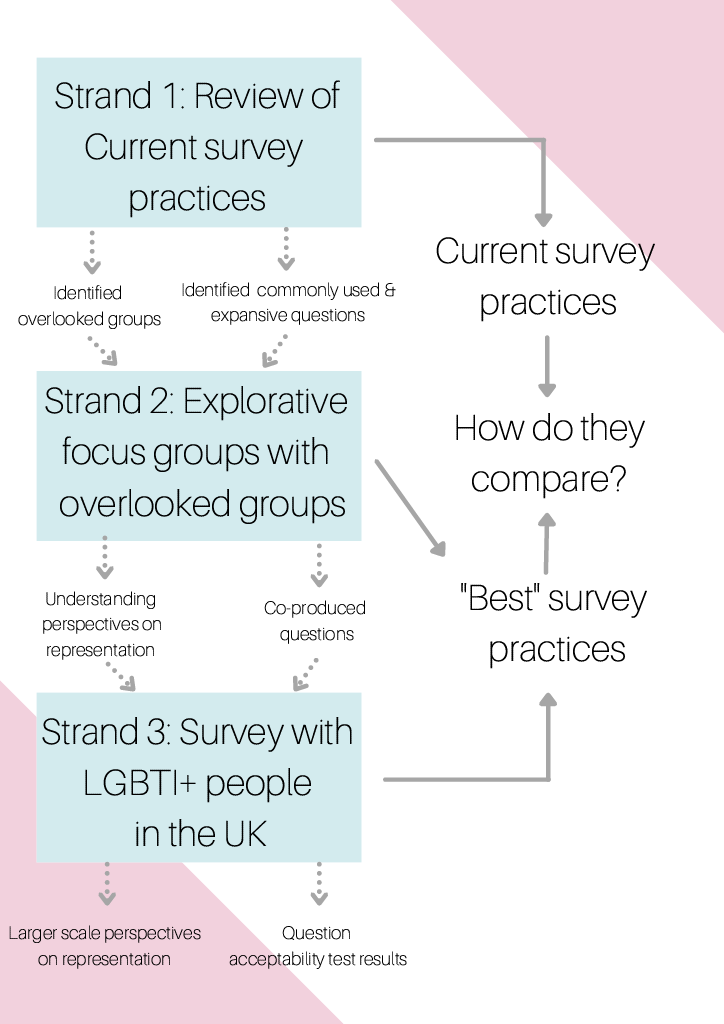LGBTQ+ Census Guide 2022
Published:
The 20th of March 2022 is census day in Scotland. This census year is of particular importance to the LGBTQ+ community. Here I provide some information for LGBTQ+ people filling in the census. As a non-binary person, I’m disappointed by the binary sex question. However, that makes the optional text box in the “trans status or trans history” question more important. If your trans and feel comfortable doing so please make use of that box so our community is represented accurately.






The legal case over the census
On the 2nd of February the Court of Sessions in Edinburgh heard the case seeking to change the sex question guidance in the 2022 Scottish census. The current guidance, much like the guidance in the 2011 UK censuses, is “lived sex” guidance meaning it recommends people respond based on how they live. Therefor trans men select male and trans women select female. The case wishes to change to “legal” or “documented sex” guidance which would state that you respond based on your birth certificate. If following this guidance, only trans people with GRCs would respond based on how they are born while other comparable trans people misgender themselves.
The case was brought forward by Fair Play for Women, who previously brought a similar case against ONS over the guidance in the other UK censuses. Although, Fair Play for Women were granted permission to carry out a judicial review over the other UK censuses, the guidance was changed before any such action occurred. We do not currently know the verdict surrounding the Scottish census.
In a previous blog post I discussed the significance (or lack thereof) of the guidance changing in the census in England, Wales and Northern Ireland. The key points to note are as follows:
The guidance is not legally binding, you do not have to follow it. In fact, research has suggested most people don’t even read it(
NRS, 2021).There is no way to check if you have followed the guidance. They cannot tell if you have a GRC or not.
The key negative impact for data users is: If followed “documented sex” guidance produces more ambiguous data due to comparable trans people responding differently with no way to tell on what basis they answered.
In previous blog posts I’ve mentioned that changing the guidance sets a worrying president. It undermines trans peoples’ ability to know themselves best and reinforces regressive binary understandings of sex. Fair Play for Women’s focus on sex question guidance is an attempt at what Collier & Cowan(2021) describe as concept capture. It is hoped that by embedding an regressive binary notion of sex based on the outdated gender recognition system in the census that this could have wider political and legal implications for the understanding of sex, which would greatly harm trans people. This is the primary reason it should be resisted. The impact the guidance has on the census itself is minimal. To make meaningful change to the way we count sex and gender we need to move away from binary sex questions, which exclude everyone outwith the binary and clearly create confusion.
References
Collier, B. & Cowan, S (2021) Queer Conflicts, Concept Capture and Category Co-Option: The Importance of Context in the State Collection and Recording of Sex / Gender Data.
NRS (2021) Scotland’s Census 2021: Sex Question Recommendation Report. [Online]. Available from: https://www.scotlandscensus.gov.uk/documents/sex-question-recommendation-report/html/.



